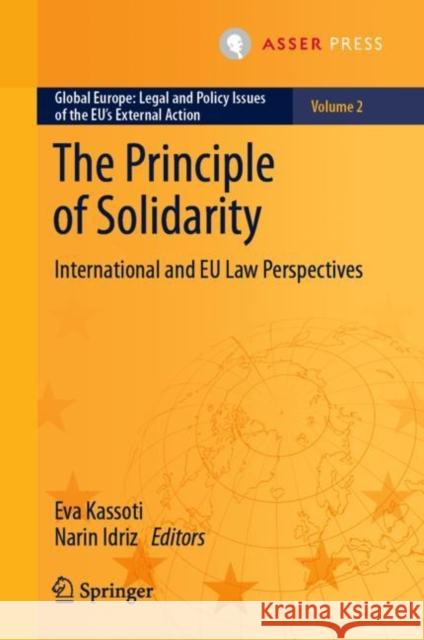The Principle of Solidarity: International and EU Law Perspectives » książka
The Principle of Solidarity: International and EU Law Perspectives
ISBN-13: 9789462655744 / Angielski / Twarda / 2023 / 296 str.
The Principle of Solidarity: International and EU Law Perspectives
ISBN-13: 9789462655744 / Angielski / Twarda / 2023 / 296 str.
(netto: 549,49 VAT: 5%)
Najniższa cena z 30 dni: 575,62 zł
ok. 20 dni roboczych.
Darmowa dostawa!
This edited volume explores the principle of solidarity in international and EU law. Although the concept is regularly invoked in international and EU legal and policy debates alike, its meaning, nature and functions, as well as normative contours still remain nebulous.The contributions in this volume reflect on the legal trajectory of solidarity in international and EU law and offer unique insights into the evolution and status of the principle in different fields of international and EU law. By doing so, the book also serves as a springboard for answering broader questions pertaining to what the stage of development of this principle may imply for the two legal orders and their interaction.As the chapters of this book show, the debate on solidarity is premised on conflicting visions regarding the values underpinning the international legal order as well as the self-interest or community-oriented driving forces behind States’ action at the international level. The regional (EU law) perspective offers a new lens through which to revisit classic questions pertaining to the nature of modern international law and to assess its continuing relevance in a world of regional organizations presenting different visions (and levels) of co-operation.This book, the second volume to appear in theGlobal EuropeSeries, will appeal to international and EU law researchers and policy-makers alike with an interest in the nature and function of the principle of solidarity in international and EU law.Eva Kassotiis Senior researcher in EU and International Law at the T.M.C. Asser Institute in The Hague, The Netherlands and the Academic Co-ordinator of CLEER.Narin Idrizis Researcher in EU Law at the T.M.C. Asser Institute in The Hague, The Netherlands.
This edited volume explores the principle of solidarity in international and EU law. Although the concept is regularly invoked in international and EU legal and policy debates alike, its meaning, nature and functions, as well as normative contours still remain nebulous.The contributions in this volume reflect on the legal trajectory of solidarity in international and EU law and offer unique insights into the evolution and status of the principle in different fields of international and EU law. By doing so, the book also serves as a springboard for answering broader questions pertaining to what the stage of development of this principle may imply for the two legal orders and their interaction.As the chapters of this book show, the debate on solidarity is premised on conflicting visions regarding the values underpinning the international legal order as well as the self-interest or community-oriented driving forces behind States’ action at the international level. The regional (EU law) perspective offers a new lens through which to revisit classic questions pertaining to the nature of modern international law and to assess its continuing relevance in a world of regional organizations presenting different visions (and levels) of co-operation.This book, the second volume to appear in the Global Europe Series, will appeal to international and EU law researchers and policy-makers alike with an interest in the nature and function of the principle of solidarity in international and EU law.Eva Kassoti is Senior researcher in EU and International Law at the T.M.C. Asser Institute in The Hague, The Netherlands and the Academic Co-ordinator of CLEER.Narin Idriz is Researcher in EU Law at the T.M.C. Asser Institute in The Hague, The Netherlands.











